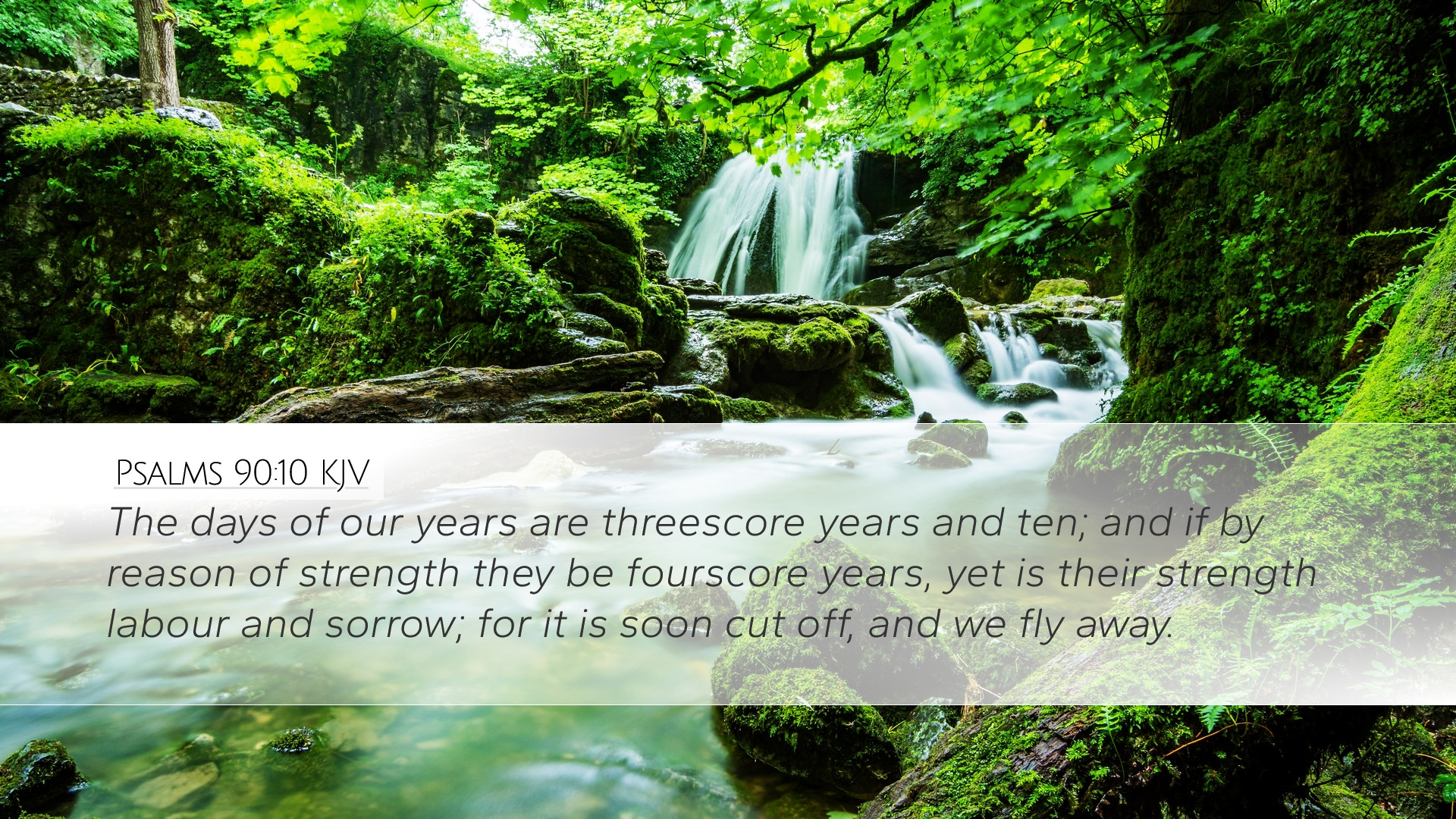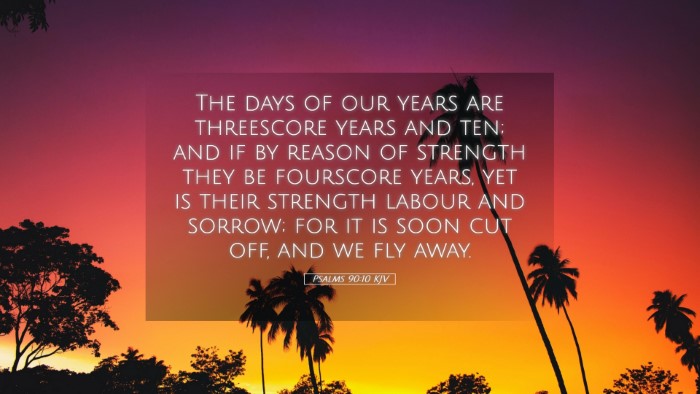Psalms 90:10 - The Mortality of Man
“The days of our years are threescore years and ten; and if by reason of strength they be fourscore years, yet is their strength labour and sorrow; for it is soon cut off, and we fly away.”
Introduction
The verse from Psalms 90:10 is a profound reflection on human mortality and the brevity of life. Compiled from insights of revered commentaries, we delve into the depths of this passage and its implications for believers, revealing timeless truths about life, death, and our relationship with God.
Analysis of Key Elements
-
Human Lifespan
According to the Author, generally, human life averages seventy years, with a possibility of reaching eighty through divine providence and strength. This acknowledgment serves to remind us that life is inherently limited, regardless of the enhancements of modernity. Matthew Henry notes that even a long life, while a blessing, is still marred by hardships: “yet is their strength labour and sorrow.”
-
The Nature of Life's Trials
Human existence is framed by toil and suffering, emphasizing that even in longevity, the pain of life overshadows joys. Adam Clarke elucidates this further: “The word ‘labour’ here indicates the tasks and trials inherent in existence.” The human experience is stained by sorrow, and all the strength in the world cannot compensate for this fundamental truth.
-
Temporal Existence
The concluding phrase, “for it is soon cut off, and we fly away,” suggests a transitory nature to life, reinforcing the reality of death. Albert Barnes states that this not only illustrates the certainty of death but also the swiftness with which it approaches. The imagery of flying away encapsulates the idea of life as fleeting and ephemeral, beckoning the reader to consider what lies beyond.
Theological Implications
This verse brings forth several theological reflections pertinent to believers and scholars alike:
-
Divine Sovereignty
First and foremost, the brevity of life underscores the sovereignty of God. The psalmist acknowledges that life spans are ultimately determined by divine providence. “We must remember that our time is in His hands,” remarks Matthew Henry. This call for recognition encourages believers to live with accountability to God, understanding our days are numbered.
-
Purposeful Living
The reminder of mortality prompts reflections on how one should live. As Albert Barnes comments, knowing that life is short should inspire us to use our time wisely, committing ourselves to God’s work. Living purposefully, according to the scriptures, is vital in the light of eternity.
-
Hope Beyond Death
Furthermore, for believers, the acknowledgment of life’s frailty is met with hope beyond the grave. The phrase “we fly away” suggests a departure—implying not just death, but a transition to eternal life promised through faith in Christ. Adam Clarke remarks on the hope found in the resurrection: “Hence our sorrow is mingled with joy, as we anticipate a heavenly reunion after this life.”
Practical Applications for Life
The lessons from Psalms 90:10 are not merely theological, but they serve as practical applications for daily living:
-
Embrace Every Moment
As believers recognize the brevity of life, they are encouraged to savor each moment. As Henry suggests, rather than taking time for granted, we should engage fully in our relationships, ministries, and worship, making every day count.
-
Seek Godly Wisdom
The pursuit of wisdom as delineated in the surrounding verses of Psalms 90 (especially verse 12, which asks God to teach us to number our days) aligns with the theme of valuing our time and making it meaningful. This results in a life full of purpose, guided by divine insight.
-
Focus on Eternity
Ultimately, the assurance of eternal life allows believers to view life through a lens of hope. Clarke emphasizes that while earthly existence is fraught with troubles, it is temporary, leading us toward a promised eternity with God, giving believers a reason to persevere through trials with faith.
Conclusion
Psalms 90:10 serves as a poignant reminder of the fragility of human existence. In its rich theological and practical insights, it calls believers to live in the light of their mortality, embracing a life marked by purpose and hope. As scholars, pastors, and students of the Word reflect on this verse, may they find encouragement to live faithfully, purposefully, and with an eternal perspective.


